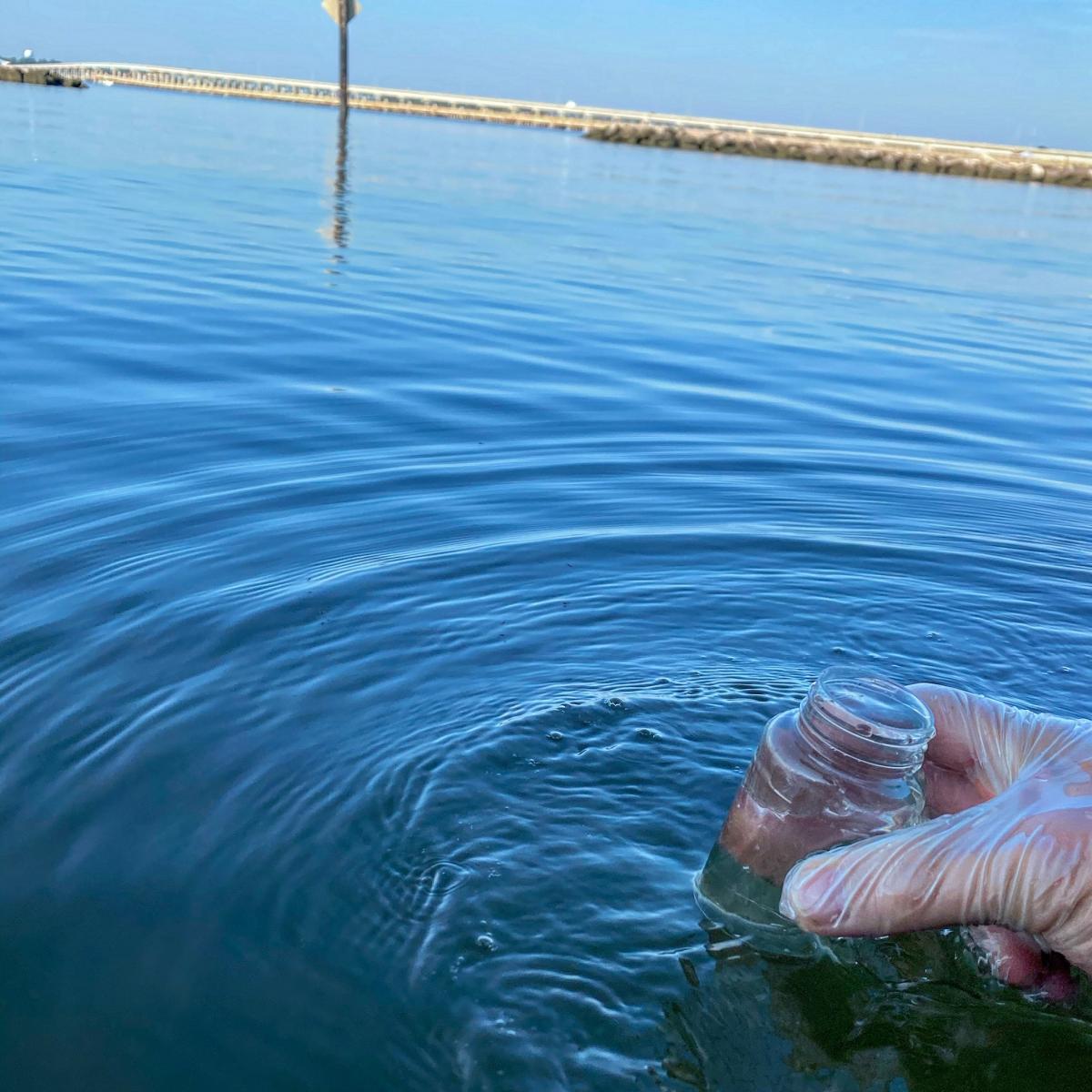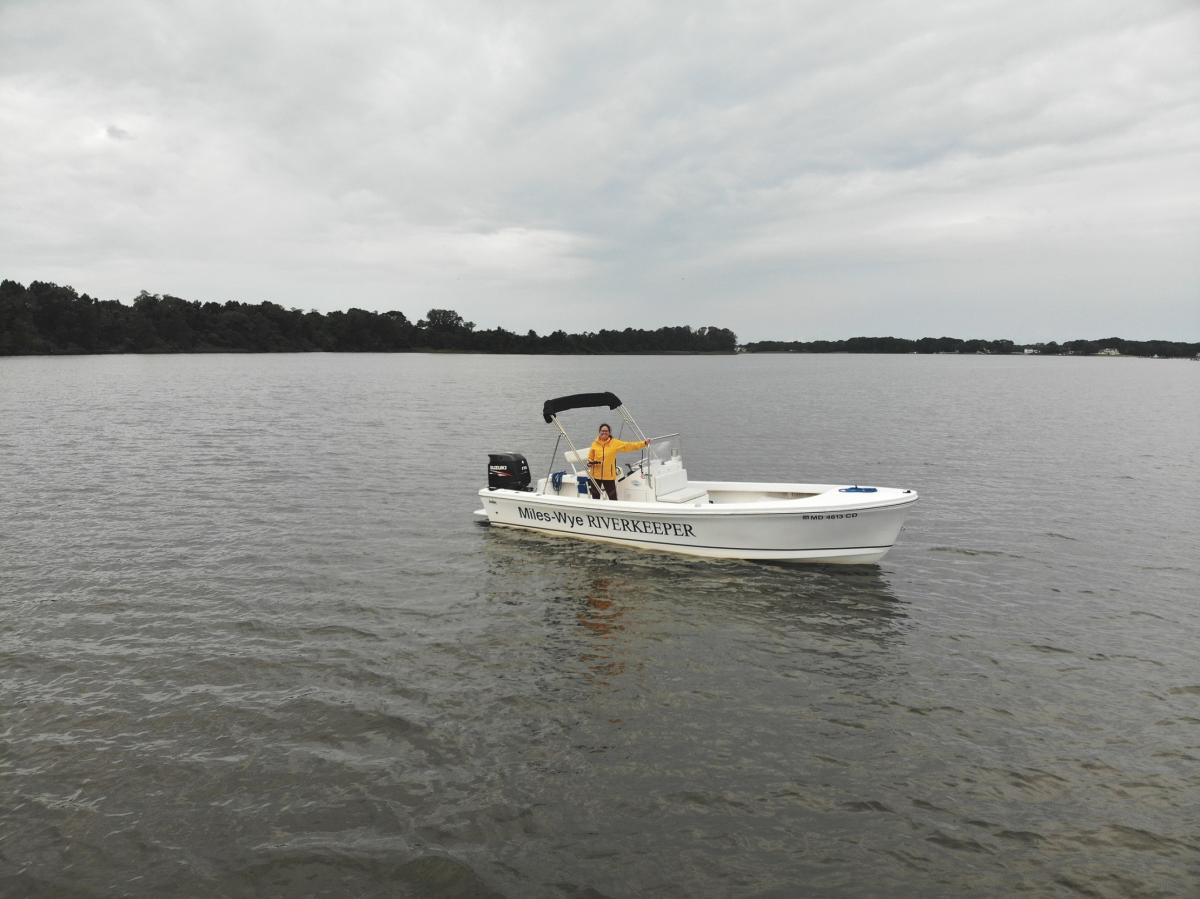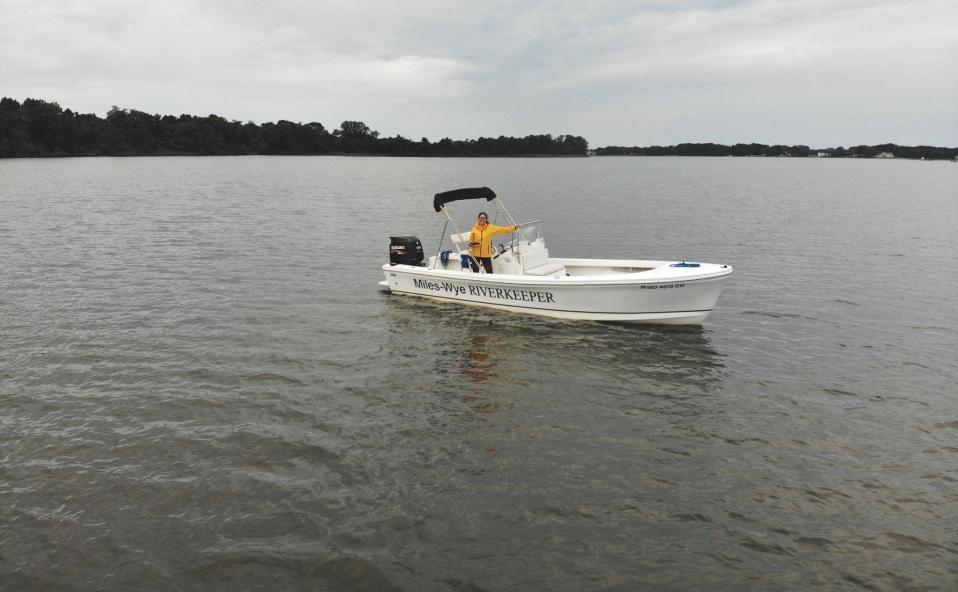
From April to October each year, ShoreRivers’ Riverkeepers conduct weekly tidal sampling of 63 sites from Cecilton to Cambridge, then test for multiple scientific water quality parameters.
From April to October each year, ShoreRivers’ four professional Riverkeepers conduct weekly tidal sampling of 63 sites from Cecilton to Cambridge, then test for multiple scientific water quality parameters including dissolved oxygen, nutrient pollution, algae, pH, and clarity. These indicators reveal the overall health of our waterways and our progress toward protecting and restoring our local rivers. ShoreRivers, statewide groups, and national agencies use this information to track trends, develop remediation strategies, advocate for stronger laws and enforcement, alert the public of potential health risks, and inform region-wide efforts toward clean water goals. The public is invited to learn more about the current State of the Rivers at five free Riverkeeper presentations around the region. Light refreshments will be provided and activities will be available for children ages 6-12. ShoreRivers appreciates its sponsors: Eastern Shore Land Conservancy, Choptank Oyster Co., Orchard Point Oyster Co., Ten Eyck Brewing Company.
State of the Rivers Presentations:
Wednesday, April 20 at Chesapeake Bay Maritime Museum, St. Michaels from 5:30-7:00pm
featuring Choptank Riverkeeper Matt Pluta and Miles-Wye Riverkeeper Elle Bassett
Wednesday, April 27 atThe Packing House, Cambridge from 5:30-7:00 pm
featuring Choptank Riverkeeper Matt Pluta
Thursday, May 5 at Washington College’s Hodson Hall, Chestertown from 5:30-7:00pm
featuring Chester Riverkeeper Annie Richards
Friday, May 13 at Volunteer Fire Hall, Betterton from 5:30-7:00pm
featuring Sassafras Riverkeeper Zack Kelleher
Thursday, May 19 at Chesapeake Bay Environmental Center, Grasonville from 5:30-7:00pm
featuring Miles-Wye Riverkeeper Elle Bassett and Chester Riverkeeper Elle Bassett

Miles-Wye Riverkeeper Elle Bassett conducts water quality sampling.
In addition to analyzing water quality data and communicating this information to the public, the Riverkeepers use their weekly sampling as an opportunity to monitor changes along shorelines, identify potential indications of illegal discharges, and scout submerged aquatic vegetation beds. These observations, coupled with the quantitative data collected throughout the year, paint a holistic and well-informed picture of what is happening along and impacting each river and its tributaries. Riverkeepers work collaboratively with communities to increase awareness of the issues, inspire behavior change, and implement practices for healthier river systems.
“Eastern Shore waterways are choked by polluted runoff from residential, commercial, and agricultural properties,” says ShoreRivers Director of Riverkeeper Programs Matt Pluta. “Intentional and unintentional bacterial contamination poses risks to human health. Regular scientific monitoring for these and other pollutants is a signature component of ShoreRivers’ operations and the only comprehensive testing of our local rivers currently being conducted. Please join us at a State of the Rivers event in your area to learn what’s happening, why it’s happening, and the important ways we can work together to make it better.”
This year marks the 50th anniversary of the passage of the federal Clean Water Act, which gave communities and individuals the right to fight for clean water. Healthy rivers, lakes, and streams are an economic benefit to local economies, but in the Chesapeake Bay region, more than half of local rivers and streams don’t meet basic water quality standards set by the State. Together with ShoreRivers and itsRiverkeepers, we can harness the energy, success, and momentum of the past five decades to face today’s challenges and obtain clean water justice for everyone. Pluta explains the aim of the State of the Rivers presentations: “We hope to shed light on the connection between water quality and quality of life, while empowering all communities to take action for clean water.”
For more information about these events, visit ShoreRivers.org/events or contact Freya Farley at [email protected].
ShoreRivers protects and restores Eastern Shore waterways through science-based advocacy, restoration, and education.
shorerivers.org


